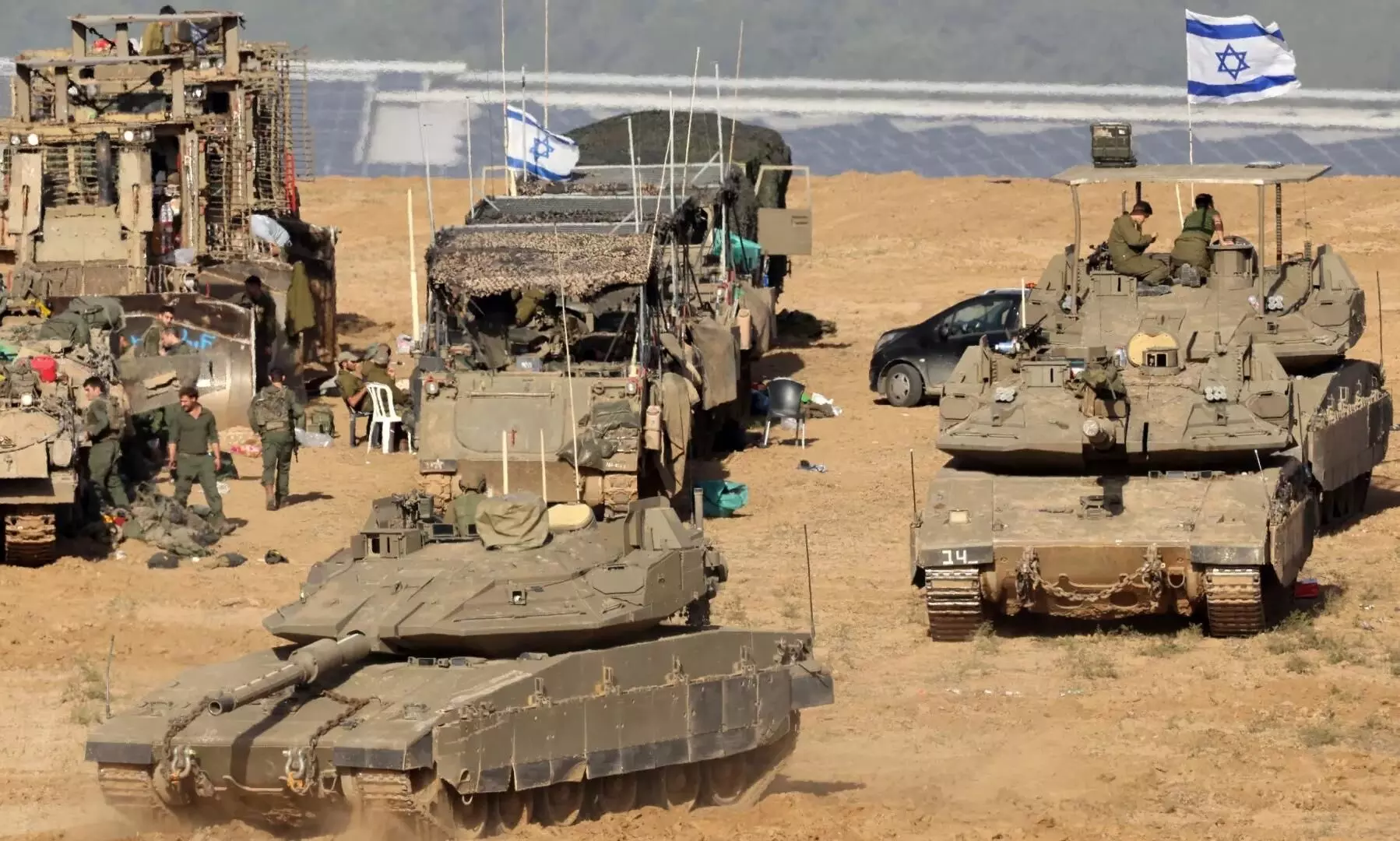
Israel withdraws troops from decimated Khan Yunis amid Iran’s warning
text_fieldsAmidst escalating tensions and a humanitarian crisis, Israel has withdrawn all ground troops from southern Gaza, citing "tactical reasons" and the need to preserve its military capabilities for precise intelligence-based operations, signalling a potential turning point in the ongoing conflict with Hamas.
This decision, announced by the Israel Defense Forces, follows nearly four months of intense fighting in the decimated city of Khan Younis, where two brigades have been stationed.
The withdrawal from Khan Younis, a city heavily targeted by Israeli forces, is seen as a move to relieve reservists and potentially allow displaced Palestinians to return to their homes. However, military analysts caution that this withdrawal does not signify a complete disengagement from the region, with the possibility of future offensives remaining on the table, particularly in the southern town of Rafah.
The timing of Israel's announcement coincides with the commencement of new ceasefire talks in Cairo, Egypt. Both Israeli and Hamas delegations have confirmed their participation in these talks, which aim to secure a second truce and negotiate the release of hostages held by both sides.
Israeli Prime Minister Benjamin Netanyahu has reaffirmed Israel's stance, stating that the country will not agree to any ceasefire until all remaining hostages are released. This comes amid growing international pressure over Israel's conduct in Gaza and the worsening humanitarian situation in the region.
Meanwhile, concerns about a wider regional conflict loom large, with Iran-backed Hezbollah in Lebanon issuing threats following an Israeli strike on an Iranian diplomatic site in Damascus. Netanyahu has warned of Israel's preparedness to respond to any aggression, underscoring the volatile nature of the situation.
The conflict, triggered by Hamas' unprecedented cross-border attack in October, has resulted in significant casualties and displacement on both sides. Official Israeli tallies indicate approximately 1,200 deaths, mostly civilians, and 250 abductions, while the health ministry in Gaza reports over 33,000 fatalities and widespread displacement.
The humanitarian crisis in Gaza has reached dire levels, with famine projected to be imminent in the northern half of the territory. Aid agencies report severe shortages exacerbated by logistical challenges and bureaucratic controls imposed by Israel. Despite Israel's assurances of increased aid deliveries, concerns persist about the effectiveness of humanitarian efforts in the region.
As negotiations in Cairo unfold, the prospects for a lasting ceasefire and meaningful progress towards resolving the conflict remain uncertain.
The Israeli cabinet's decision to increase aid comes in response to mounting pressure from foreign ministry officials and the international community. There have been warnings that failure to address the humanitarian crisis could lead to sanctions and an arms embargo against Israel.
In addition to the diplomatic efforts, there have been grassroots movements advocating for peace and humanitarian assistance. Civil society organizations both within Israel and internationally have been mobilizing resources and raising awareness about the plight of civilians caught in the crossfire.





